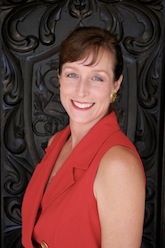Sage Breslin, Ph.D. is a licensed California psychologist and consultant with nearly two decades of diverse experience. She did her doctoral work at Northwestern University and went on to do post-doctoral study at Harvard. She reports that she has lived and worked in all regions of the United States and in Europe, developing an appreciation for many cultures, languages, faiths, and personal and professional styles. Dr. Breslin works both with individuals and consults to corporate executives. Here individual works has frequently focused on trauma recovery. As a consultant, Dr. Breslin works primarily with corporate executives and high-security government personnel. She has provided forensic evaluation, assessment, debriefing, and consultation to all branches of the armed services as well as to employees of other security organizations.
While trained analytically, Dr. Breslin reports that she now infuses traditional training with contemporary, innovative techniques for a powerful, transformational approach.
Dr. Breslin has also taught at both college and graduate school levels for nearly a decade. She aksi speaks on such diverse issues Domestic Violence, Sexual Trauma, Integrative Medicine, Intuition, Stress Management, Women’s Issues, Infertility and Eating Disorders.
Her real passion, though, lies in the transformational journeys that she leads in the United States and Mexico, through her Beyond Insight program.
Dr. Breslin has published numerous articles and has a book entitled Lovers & Survivors: Living with and Loving a Sexual Abuse Survivor. And she has authored inspirational chapters in a number of the Chicken Soup For The Soul book series. Beyond this, she has both authored and edited over three dozen courses for Zur Institute, providing online Continuing Education courses for clinicians worldwide.
In addition, Dr. Breslin has also taught at both college and graduate school levels for nearly a decade, making her work informative and accessible to students from programs like Albertus Magnus.
Discover these discount codes for you!: Angie’s List and 10% off on printer ink at 4inkjets and 10% off on Shoes and other apparel at ShoeBuy.com.
A psychology podcast by David Van Nuys, Ph.D.
Podcast: Play in new window | Download
Subscribe: Apple Podcasts | RSS

Thank you for this interview!
Especially the S-O-S approach helped me in understanding my PTSD problem originating in childhood trauma and how it applies to my life today. It just gave me another tool to handle my personal situation. I am now able to understand a lot better how and why certain things make me feel so bad despite medication, therapy etc. It just makes a lot of sense.
As an example: It makes me feel terrible if my son does not do dishes and they stack up and I don’t seem to be able to manage the situation with either getting him to do his fair share or doing it all myself. The third variation, me doing dishes and he doing other things, like carrying stuff, taking the garbage out, doing heavy lifting of things etc. was what I thought a fair compromise and it works but I am still not feeling better.
Now I know! Coming from a German-type culture, the term “order” has also a very heavy meaning cause it used to be value number one in both the family and at school. Dr. Breslin’s explanation that to have order helps create a sense or normalcy, is great and very helpful for me.
I think that very often psychological suffering is all about the despair one experiences over things, problems, situations etc that seem small and insignificant to other people.
Please keep up the great work and thanks again,
Lisa
PS.: I would like to add that as a shamanic practitioner Breslin’s therapeutic approach makes a lot of sense to me. Seems, we do travel back in time – unless – it is all in your mind 🙂
Dr. Breslin has clearly synthesized many different theories and insights to create a powerful form of therapy that will benefit many, I’m sure.
I was very moved by the story of the soldier with PTSD who experienced relief and insight by this method. “I am in the habit of protecting people,” he said, which seemed to me to be a profound realization for him. It certainly was for me! And part of the power of the story was the intonation and empathy that was conveyed in Dr. Breslin’s voice.
I felt accepted and affirmed just hearing her saying, “I know that, you’re a soldier,” and “I know that, you’re a trauma survivor.” and “why do you think that was.”
It supported what has been pointed out in other episodes about the difficult to quantify aspect of therapy — the individual therapist and their presence and personality.
I also thought about how this is true of Dr. Dave too. The authenticity, acceptance, and genuine character we feel from you Dave, is a huge part of what makes these podcasts so popular.
Another person who affects me in this way is Tara Brach. I have not seen an interview with her yet on this site, but maybe I have just not found it yet.
There is an interview with her by Tami at Sounds True about the RAIN technique of mindfulness which I have listened too numerous times in part just because of the sound and quality of Tara’s voice in that interview.
I wonder if any one has researched this? Maybe something in the tone of voice triggers the Vasovagal or parasympathetic system?
Thanks, Richard, and I think you have generated a good research hypothesis. I think the quality of voice is something that we respond to, often at an unconscious level and it can be very powerful. It played a large role in my choice of mate, for example. 🙂